This is the fourth episode of our new interview series entitled "Don't just criticise, create! David Engels talks to European artists, philosophers, priests, intellectuals, activists and craftsmen who have decided not only to lament the "decline of the West", but also to try to help reverse it. They did so by creating something new - and perhaps also something beautiful, true and good.
David Engels: Dear Victor, you are the director and co-founder of Academia Christiana, a growing Christian, patriotic and conservative association dedicated to the education of young adults. Can you tell us more about the activities you are currently offering in the context of Academia Christiana and the ideal you are trying to transmit?
Victor Aubert: Initially, Academia Christiana organised an annual summer university for students and young workers, and then over the years we have developed colloquia and training sessions in several large cities in France. For the past three years, we have been organising festive days bringing together all generations around our culture (Oktoberfest, St. John's fires). Academia Christiana could be described as a conservative "think tank", a training institute and a network of initiatives. We offer courses in philosophy, history and practical training as well as political reflection in the form of lectures and open forums. Today, more than 4000 young people have passed through our training courses, and we usually receive between 200 and 500 people per event.
We try to live as rooted Catholics. This implies a certain intransigence towards the individualistic hedonism promoted by contemporary society, but also the refusal of relativism. In concrete terms, we want to invite our participants to know their past and to love it, to lead a spiritual life, to start large families, to practise meaningful professions, to engage in cultural and political combat and to make their entire life a testimony to this ideal.
What exactly are young people looking for when they enrol in your courses?
Our young listeners come to find conviviality, cohesion, and bridges to engagement. Nowadays, there is a great deal of content available online for training on philosophical-political and religious issues. The advantage of travelling to experience a week of training, surrounded by 300 young people, is that there is something unique about these moments: a kind of fervour and effervescence that makes you feel less isolated and entices you to get involved. We give our participants a chance to meet with cultural, political and community actors to help them move from words to action.
Unlike many other countries, in France, the establishment of a real Christian and conservative counter-culture is already quite strongly developed. Do you have an explanation for this phenomenon?
It's a long story. Republican anti-clericalism has perhaps contributed more to the development of the conservative Catholic bloc than the Church itself. Since the French Revolution, there has always been some protest movement. First there was the Chouannerie and the Vendée wars, then the struggle of monarchist Catholics against the Republic in the 19th century. The condemnation of Action Française reinforced this feeling of belonging to a persecuted minority and helped develop collective consciousness. Then there was the Algerian war, the fight against communism, and then Vatican II and the Lefebvrist opposition. So in France there is a whole history of rebellion against the secularist and progressive ideology. This history is inscribed in families and a social milieu that includes schools, chapels (Fraternity of Saint Pius X, Saint Peter, Institute of Christ the King...), pilgrimages (Notre Dame de Chrétienté), associations (Scouting, March for Life, SOS Chrétiens d'Orient...), media (TV Libertés, Le Salon Beige), and businesses (Le Puy du fou being the best known example). These are not closed sects, but rather a race of men and women who will remain rebels out of loyalty, against all odds.
A few months ago, you organised a summer symposium in Paris under the title: "Reconquest or secession"? Can you explain to readers your solution to this dilemma?
The opposition between these two concepts is attenuated if we define them correctly. If reconquest means living in big cities, investing in the big CAC 40 companies, sending our children to business schools, giving all our time to big conservative parties, betting on a potential electoral victory, accepting a certain number of compromises regarding entertainment culture in order to disseminate conservative ideas - then indeed, all this is undoubtedly a great waste of energy. If secession is to hole up in the countryside in a secluded house, to withdraw from cultural and political fields and live in small closed communities, to systematically reject technology and innovation in order to preserve oneself from corruption - then this is also a dead end. In my opinion, we must break with this approach, which can only waste time and lead to disappointment, despite maintaining the political objective in the noble sense of the word. In concrete terms, this means we must aim for a coherent ideal of life, making time for the spiritual life, and taking care of our families while remaining in the world. We must give priority to local political action, development of our own businesses, cultural action, and try to shine through our exemplary nature.
Can you tell us a little more about your personal journey to becoming the founder of Academia Christiana and the reasons and inspirations that led you to this initiative?
Born in 1989 in Paris, I was brought up in a very slightly left-wing, middle-class family and attended secular and republican schools until high school level. Like many baby boomers, my parents, born into Catholic families, abandoned the faith or practice as they entered adulthood. During my trips to Asia and Africa as a young boy, I was fascinated by the religious fervour of those peoples. To do as the Hindus do, at the age of ten I asked to be baptised at my local church, because I was French. Confrontation with multiculturalism and anti-racist propaganda at school triggered my epidermal reaction to the left at the age of twelve. One thing leading to another, notably through scouting, I discovered traditional liturgy, then conservative thought through magazines and movements. After three years in the seminary, I went back to study philosophy, and that's when the idea of Academia Christiana was born. Together with a few friends, we wanted to pass on intellectual heritage that we had made our own in the course of personal search. We wanted to make sure that as many people as possible could benefit from it, and that this dissemination was aimed primarily at young people.
The Academia Christiana has not only made friends, as one can easily imagine. Can you tell us a little about the opposition you have faced in the past?
As soon as we reached a certain level of visibility, the trouble started. Extreme left-wing websites began to describe us in unflattering terms. The mainstream media were quick to label us with slanderous names without regard to the content of our training or even our publications. Public service television produced an infamous report trying to make us look like some kind of cult or militia. The schools that hosted us were accused of complicity with the horrible fundamentalist Catholic and Nazi extreme right. Nobody - or almost nobody - dared to rent us premises for our trainings. Within Christian circles, our free speech and openness towards the New Right frightened some clerics and a few chagrined minds. We were accused of complacency towards neo-paganism or Marxism. Our style may have shocked the older generations, and the success of our groups unfortunately stirred up some jealousy. The French like to segment their commitments: on the one hand, there is pure politics, on the other, spiritual life and charity. Perhaps the fact of promoting political commitment while assuming our faith may have been shocking. In reality, we are trying to remain faithful to the heritage that previous generations have passed on to us, trying to dust it off and make it accessible to young people who are totally uprooted.
The Academia Christiana is expanding rapidly - can you tell us a little more about your plans for the future and your fears?
We have a real treasure at our disposal: our European cultural, spiritual and Christian intellectual heritage. We have to appropriate it, pass it on and above all live it. Our objective is to spread this ideal so that it becomes a real counter-culture driven by the enthusiasm of youth. In the long term, we would like all the Christian activists to form small communities, grouped around schools, parishes or abbeys. They would radiate to their surroundings and attract to them the French who aspire to find their roots.
We are currently looking to buy an estate to develop our training courses and cultural events: rediscovery of local traditions and crafts, banquets, seminars, sports courses, summer schools, trade fairs, etc. This place would be a sort of Catholic identity showcase where everyone could come to recharge their batteries and be trained. While waiting to be able to buy such an estate, we are developing training courses in various cities in France, a collection in a publishing house, video programmes for Youtube, and two large summer universities in the North and South of France.
We would also like to export Academia Christiana to Europe by proposing to young people who share our vision of the world to reproduce something similar in their country, and then to maintain our links through regular exchanges and collaboration.
I am aware that the economic situation will deteriorate, that the risk of a world war cannot be excluded, and I can see every day that my country is affected by a terrible anthropological decline: addiction to screens, obesity, wokism... The weight of Afro-Turkish-Muslim immigration is also extremely worrying. In parallel to all this, I see that what we have managed to create so far, thanks in particular to the friendly and community-oriented dimension of Academia Christiana, an excellent means for resisting this dissolving pressure. The joy of sharing the same ideal with comrades is an exceptional fuel. In the end I fear our lack of perseverance and courage more than the blows of our enemy. I am convinced that if we fight during all our lives with faith and enthusiasm, it will bear fruit for the future.
The motto of this interview series is: Not only criticise, but create! - can you identify with this motto, and if so, how?
This could be the motto of Academia Christiana! Unfortunately, I have noticed that there are many bitter people in conservative circles, because their unmitigated pessimism has left them bruised. By dint of watching our world collapse on a daily basis, we have come to be mad. When criticism becomes obsessive it often leads to mutual ostracism, because the neighbour's criticism does not go far enough or in the right direction. Moreover, a critical position is very comfortable, as it allows us to avoid getting involved and to disassociate ourselves from dysfunctions. It is all very pathetic. Blissful optimism doesn't suit me either, of course, but when you put your hand to the wheel, you immediately look at the world differently. The smallest victories give meaning and hope to everyday life. Old grudges are no longer necessary when you can build together what everyone has been waiting for so long. There will always be grumblers and malcontents, but they should be ignored as much as possible, and the new world should be built, singing, on the ruins of modernity.
Read also
Deliberatio.eu: Prof. David Engels & Propst Dr. Gerald Goesche
Propst Dr. Gerald Goesche leitet das Institut St. Philipp Neri in Berlin, eine kleine, traditionell katholische Gemeinde mitten im Herzen der weitgehend atheistischen und linksliberalen Bundeshauptstadt. David Engels sprach mit ihm für "Deliberatio" über seine Mission, das Leben in Berlin, die lateinische Messe, die Zukunft des Christentums und das Streben nach dem Wahren, Schönen und Guten.
David Engels
Interview with Anna Tompson, member of the “European Fraternity”
This is the eighth instalment of our new interview series, called “Don’t just criticise, create!” David Engels speaks with European artists, philosophers, priests, intellectuals, activists, and artisans who have each decided not only to lament 'the decline of the West' but also to endeavour to help reverse it. They have done this by making something new, and also perhaps something beautiful, true, and good.



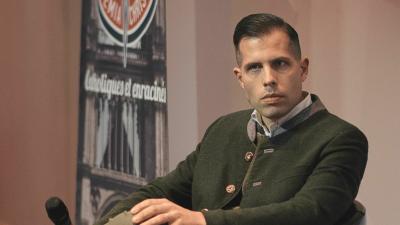

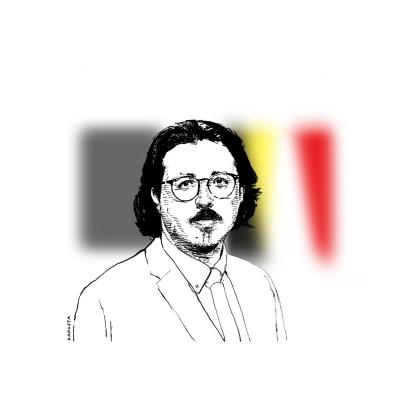
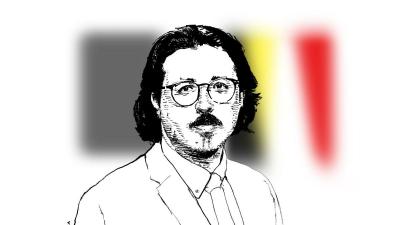

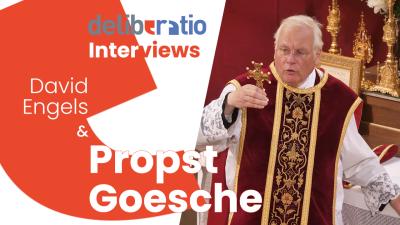

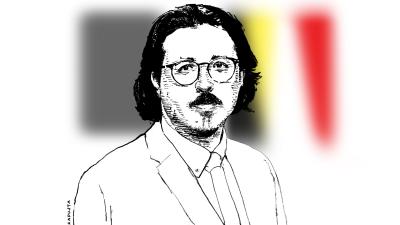

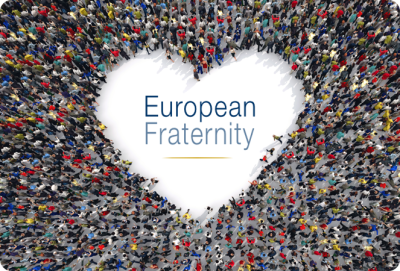

Comments (0)